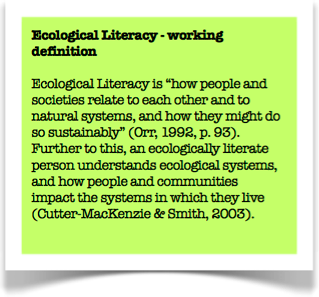Poetry in Gardens
19/08/11 14:08 Filed in: humanities
Pedagogy

Pedagogy Question: How has poetry and prose influenced your understanding of the world?
Garden Field Poetry (Do this right here and now!)
Grab your paper and pencil/pen and go out into a garden, or to a garden near you (your neighbour’s or nearest community garden or farm). Walk around the garden slowly, and be aware of your breath as you go. Try the mediation: “Breath in, I recognize that I am breathing in. Breath out, I recognize I am breathing out.” Imagine that your thoughts are leaves floating on top of a stream. Let them flow through your mind but do not catch hold of the first one. Keep walking around the garden, and acknowledge what you are seeing, smelling, tasting, touching, and hearing as you go. Be aimless in your approach. When your attention finally latches on to something, like a flower’s shape, or the sound of leaves in the wind, or the moisture of the soil, hold onto that for a moment and be there with it. Deeply listen to the rustling or deeply look at that shape. Now find a quiet area to sit down and think about this experience you just had.

Activity Questions: What was there for you? Take some notes on your paper. They could be prose, single words, or drawing. What does this experience remind you of you in your own life? How does this experience connect with other elements in the garden? Can you express the colour or shape or sound or taste in words? Give it a try and use any form you would like. Here are some forms that I have fun playing with:
Haiku (5 syllables, 7 syllables, 5 syllables)
Free prose for around 10 minutes (then go back through your text without reading it but just circling the words that pop out for you, rewrite those words below your prose - tada! you have a poem)
Field poetry (mix technical and ecological understanding with juxtaposed words. For example, the stigma-style remnants of the lily annoyed the buzz out of the honey bee.)
blog comments powered by Disqus
